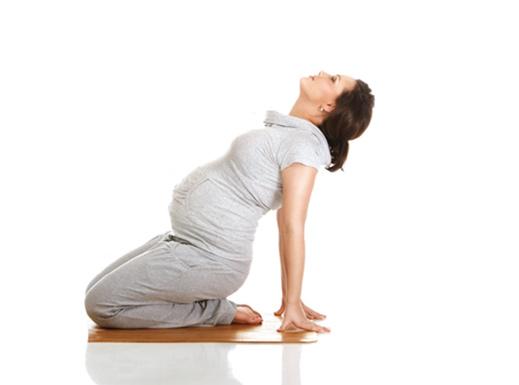You are here
Debunking common pregnancy myths
By Ola Abu Laban , Family Flavours - Jun 26,2022 - Last updated at Jun 26,2022

Photo courtesy of Family Flavours magazine
By Dr Ola Abu Laban
Senior Ob/Gyn Resident
Pregnant mothers are often bombarded with advice from every direction, a lot of it unsubstantiated and false. Most of it is harmless, but some can cause unnecessary worry and even health complications for both mama and baby. Can you carry on with your life as usual — drink coffee, colour your hair, have sex? We address your biggest concerns.
Avoiding the flu vaccine
You should do just the opposite. Some women worry that the vaccine will give them the flu or that the preservatives in the vaccine may harm their baby. The flu shot will not give women the flu and there is no evidence that the flu vaccine harms the foetus. A flu shot can be a lifesaver.
Pregnancy causes changes in a woman’s lungs and heart , immune system, putting her at increased risk for catching a severe case of the flu. Make sure to get the flu shot (containing inactivated virus), not the nasal spray vaccine (containing weakened live virus).
Avoiding hair dye
The chemicals in hair dyes, perms and relaxers are only absorbed through the skin in minimal amounts that are not harmful. There is no risk to the foetus from hair dyes and other hair treatment products.
However, the strong odours may cause nausea, so make sure that the salon is well ventilated and wear a facemask if the fumes are irritating. If you are worried, you can wait until after you’ve passed the first trimester to dye your hair and avoid using hair dyes containing ammonia.
Avoiding air travel
Flying will not harm your baby at any stage of pregnancy and is fine at any time for those with low-risk pregnancies. Most airlines do not allow air travel during the last month of pregnancy and it is medically advised not to travel after 37 weeks, as there is always the chance that you could go into labour on the plane.
If you do fly, make sure to stay well hydrated and walk up and down the aisles regularly to help decrease the risk of developing a blood clot in your legs. This can happen to anyone that sits for too long, but pregnant women are at particular risk.
You can also wear compression stockings to help keep your circulation flowing well. If it’s the airport body scanners you’re worried about, don’t worry. The small amount of radiation will not harm your baby, but you can always opt for a pat down instead; most airline security officers will accommodate.
Avoiding sex
Sex is safe during pregnancy and will not harm your baby. Your baby is cushioned in amniotic fluid and protected by an amniotic sac and strong uterine muscles and pelvic bones. A thick mucus plug also seals the cervix. Orgasms cause very mild uterine contractions, which are entirely safe in a low-risk pregnancy.
However, your doctor may advise against intercourse if he or she deems your pregnancy to be at high risk for miscarriage, preterm labour, or if you have unexplained vaginal bleeding.
Avoiding coffee
Caffeine is a stimulant (increases your heart rate and blood pressure) and a diuretic (increases urination and places you at risk for dehydration). Both of these things are not recommended during pregnancy. Caffeine also crosses the placenta to your baby. It is found in coffee and tea, sodas, chocolates and some medications.
Numerous studies link caffeine intake to an increased risk of miscarriage, preterm birth and low birth weight babies. Other studies find no increased risk in women who drink minimal coffee.
Due to conflicting results, the current recommendation is that pregnant women limit their caffeine intake to less than 200mg a day, which is equivalent to about one to two mugs of instant coffee.
Avoiding exercise
In the past, women were urged to reduce or even avoid exercise. We now know that not only is it safe to be physically active during pregnancy, it also can be beneficial to both mama and baby.
Exercise during pregnancy has many health benefits. It can improve circulation (decreasing your risk for varicose veins, leg cramps and ankle swelling). It can prevent back pain by strengthening the supporting muscles in your lower back. Exercise can improve your energy levels during the day and help you sleep better at night.
It can also help prepare you for the labour process and studies have shown that women who are more physically active have shorter labour and need less medical intervention at the time of delivery.
Make sure to check with your doctor before starting any exercise programme during pregnancy. Avoid strenuous exercise, contact sports and anything that puts you at risk for falling down. Also avoid exercise that requires you to spend a lot of time on your back, as this may decrease blood flow to your baby.
Finally, make sure to keep well hydrated throughout the day, especially during your workout.
Family Flavours/July 2016
Reprinted with permission from Family Flavours magazine
Related Articles
Pregnant women who drink lots of coffee and other caffeinated beverages may be more likely to have kids who are overweight than mothers who
Significant hormonal changes occur in a woman’s body during pregnancy, which can increase the risk of developing dental problems such as gin
Back pain during pregnancy is not surprising, but it still deserves attention.














